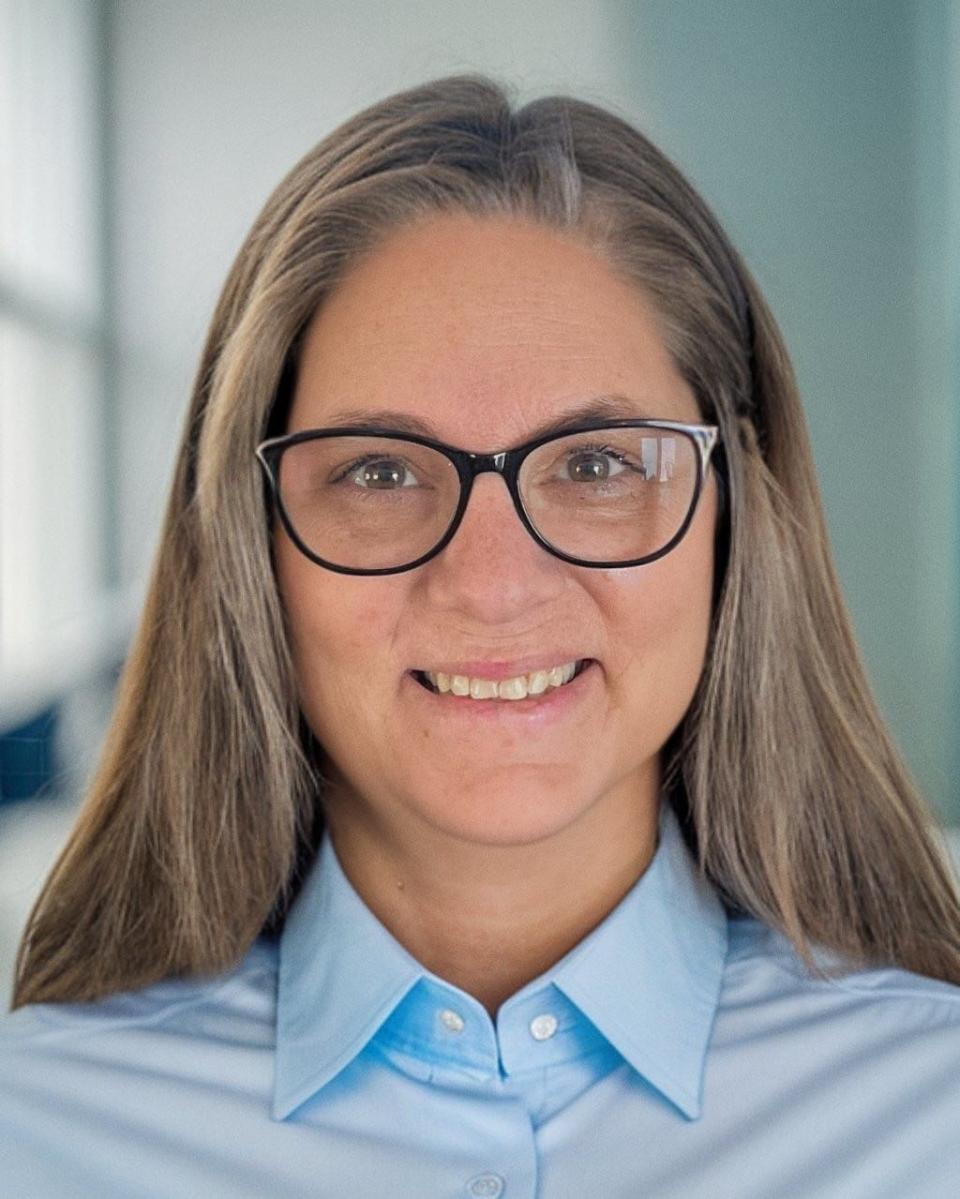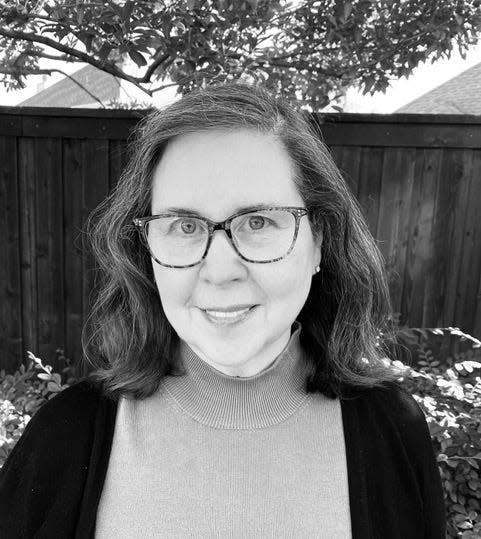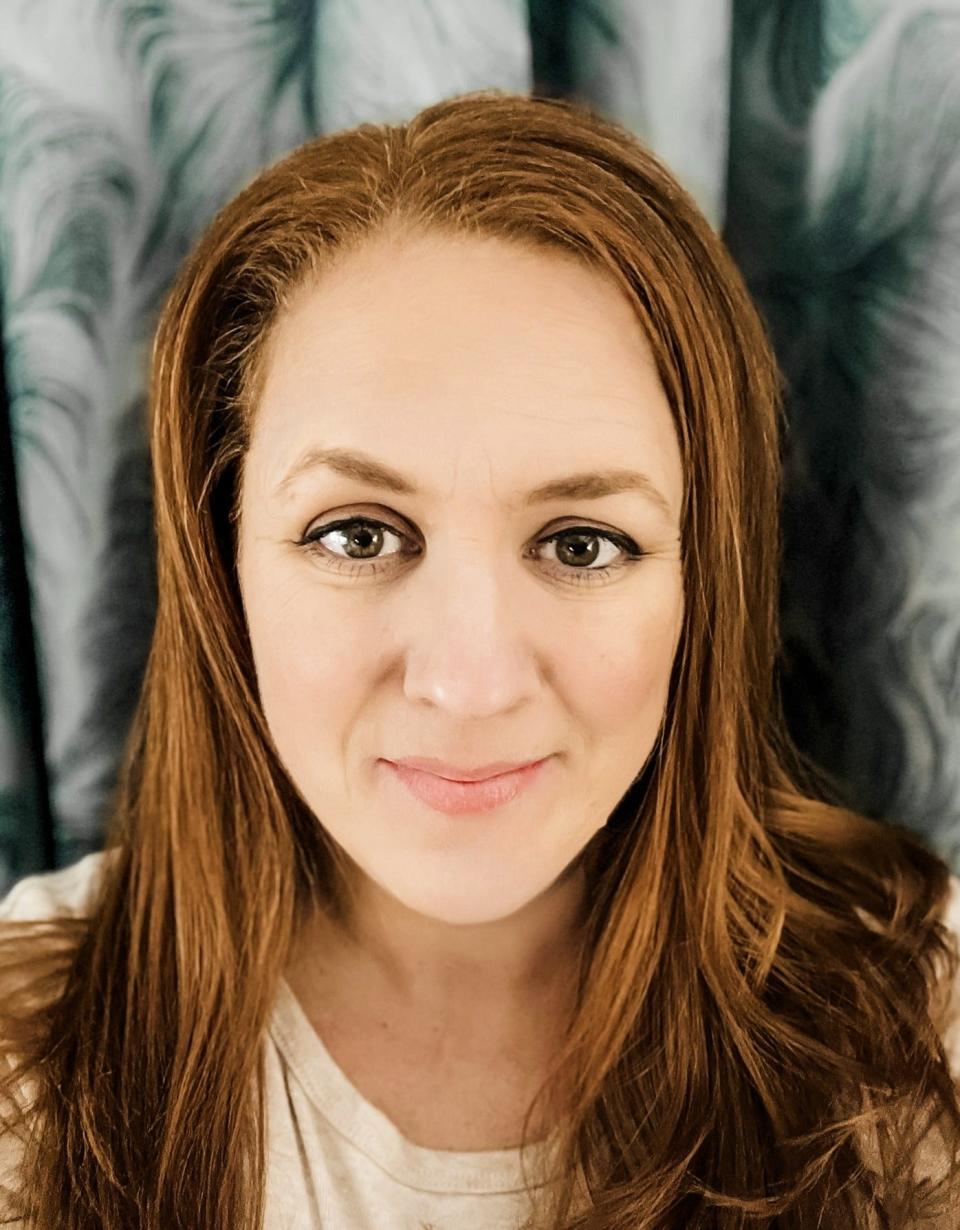AncestryDNA, 23andMe introduce you to new relatives. Now the nightmare: They won't offer medical history.
Erin Cosentino's grandfather was a foster child. So when she decided to take a DNA test to dig into her roots in December 2017, she expected to discover unknown relatives. A Christmas gift of sorts.
The now 49-year-old from New Jersey certainly discovered them – and in the process learned that the father on her birth certificate, who died of a deadly brain cancer, wasn't related to her at all. Her biological father turned out to be someone she knew as a child.
Cosentino began communicating with him for a few months after breaking the news and even learned some medical history. But when she contacted her siblings – his other children – the relationship soured. She hasn't spoken with her biological dad since May 2017. "I am lacking a comprehensive family history, and I'll never get it."
Her story is not uncommon: Tens of millions of people use kits like AncestryDNA and 23andMe every year to find missing puzzle pieces to their lives. Out of 23,000 respondents to a survey of DNA service users, 3% discovered their parent was not actually their biological parent, and 5% found full or half-siblings, according to research from the Baylor College of Medicine published in the American Journal of Human Genetics in 2022. While some have happy tales of finding long-lost family members, others experience the opposite.
Experts caution those using these services to be careful, as you may not always get what you want from biological relatives – even if all you want is a comprehensive view of your medical history. But those in the non-paternity event (NPE) community argue that people simply want health information to better live their lives – and don't think that's too much to ask.
They discovered they were siblings. Then, they found hundreds more. It has taken a toll.
"Withholding someone's medical history, in my opinion, is cruel, and there isn't a need for it," says Leeanne Hay, author of "NPE* A Story Guide for Unexpected DNA Discoveries." "So please be patient. And please be empathetic for all parties."

When that 'romanticized' reunion doesn't pan out
Cosentino thought her journey might go a bit differently. "Many of us who make this discovery have this very, for lack of a better word, romanticized view of what reunion, could look like," she says. She knew the guy, after all, and maybe even guessed she was his daughter.
"When that didn't happen, it hurts," she says. "It's painful. Of course, I just try to remind myself that while I am missing out on a relationship with him, he's missing out on a relationship with me as well. And so I just really try and keep that in the back of my mind."
For the biological parent, "the news that they have been found might be very challenging," says Maryanne Fisher, a psychology professor at St. Mary's University in Canada. "There are various reasons that people step back from parenting, and not all of them are pleasant or by choice." And just because you feel you should have access to their medical history doesn't mean they agree.
'It turns out Pop-Pop's not a blood relative'
Seven years ago, Hay spat in a tube and learned at age 57 that her childhood mentor and mother's longtime boss was actually her dad.
His other children, her half-siblings, are much older than she is; She actually babysat her half-sibling's children in high school, not knowing they were her nieces.
Hay initially struggled to get medical information from one sibling but has since been informed about new health issues that crop up. She grew closer to her brother, John, closest in age to her, though he's now suffering from dementia.
Without medical history, people feel they can't fully know themselves. Prepare themselves.
"My children are now adults, going to doctors and physicians on their own, filling out medical histories," Hay explains. "'What was it that Pop-Pop had?' 'Well it turns out Pop-Pop's not a blood relative.'" Hay gave a TEDx Talk earlier this year on the topic.

'Now leave me alone'
Hay and Cosentino pride themselves on helping fellow NPEs. Cosentino turned her knack for researching family trees into Hiraeth Hope & Healing, a nonprofit that organizes retreats for adoptees, donor-conceived people, late discovery adoptees and NPEs, in addition to helping people track down their relatives.
She knows how important finding medical history is – the man on her birth certificate had glioblastoma multiforme, a brain cancer that killed him. Wouldn't a biological child want to know that?
People also search years for answers to unexplained autoimmune diseases, like the 200-person donor-conceived siblings pod who share many of the same medical issues.
Cosentino assists people in crafting letters to new relatives, explaining that this may be a shock and that they lead a stable life but need accurate medical histories.
"Sometimes people get (medical histories) and sometimes they don't," Cosentino says. "Sometimes they get it and that's it. You said that was all you wanted, now leave me alone."
In case you missed: Ancestry, 23andMe and when genetic screening gifts aren't fun anymore
'We don't want anything except answers'
Lori Tirado understands the quest for medical history, too. She took a 23andMe DNA test for fun in 2018. The now 42-year-old was not prepared for the nationalities nestled there. Wasn't she Scandinavian? Nope. She was Jewish, Hispanic and Cuban. Her cousins, however, were all Scandinavian: Her first hint that something was amiss; her parents denied knowing anything. But a few months later, she got a message from someone claiming to be her half-sister.
The truth? She learned she was a donor-conceived person who has at least five siblings through the same father; her mother, as far as she knows, is her biological mother. "My parents were not forthcoming whatsoever with that information," Tirado, of Long Island, says.

The newfound siblings later learned their father died in his 40s – sending the group into a panic. "That was terrifying for us because we were getting close to 40 years old at that point," she says. Their grandmother told them he died of multiple sclerosis – "to learn that he had that and none of us knew we were so closely connected to it, that's scary." They got his complete medical history, but only after some difficulty with other relatives.
"We don't want anything except answers," she says. "Like, we're not trying to take money. I don't know what their thoughts were, but they didn't want to hear from us."
Tirado had a health scare back in 2022 and ended up with a massive blood clot. She went through a hematology-oncology workup with extensive genetic testing because she didn't know the extent of her medical history.
Of course, "there is no exact science with medicine," she adds. "But at least if they know what your family line has in it, then they're more apt to follow that direction to try to diagnose you appropriately."
'This was all a shock': When DNA test kits unearth family secrets, long-lost siblings
'How would that feel?'
Even if you know your parents are your parents, think long and hard before sending your DNA away. You have some other options to learn about your health, such as genetic testing for cancers.
Those who discover new relatives should keep in mind, too, that "families are ultimately what we make them," says Chase Cassine, licensed clinical social worker. And patience and time might yield a connection and, ultimately, a medical disclosure. But if it doesn't, therapy can be a big help.
And to those still in doubt about sharing medical history if approached, Cosentino offers: "I would say how would you feel if this were you? How would you feel if you had something that was going on and you couldn't put your finger on it? And somebody was knowingly withholding? 'I know what's wrong with you, but I'm not going to give you the information. Figure it out on your own.' How would that feel?
"How would that feel?"
This article originally appeared on USA TODAY: Ancestry DNA, 23andMe and when you're denied your medical history
